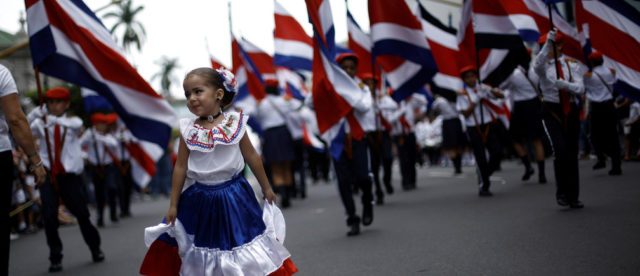Greater public support for democracy, which improved the scores of political participation and political culture, allowed Costa Rica to enter the list of “Full Democracies” in 2018, according to an index prepared by the British magazine The Economist. The list of full democracies is made up of some 20 countries, mainly European, and in which Uruguay was listed -up to the previous year- as the only Latin American country.
By 2018, of the 24 Latin American and Caribbean countries tracked the Democracy Index, 13 saw their scores improve as of 2017, while the remaining 11 saw deterioration. “The region now has 2 full democracies, 14 defective democracies, 5 hybrid regimes, and 3 authoritarian regimes”, the magazine said in its report released Wednesday.
To make this list, The Economist analysts take into account various issues grouped into 5 categories: electoral processes and pluralism, the functioning of the Government, political participation, democratic political culture, and civil liberties.

Norway, Iceland, and Sweden lead the ranking with respective scores of 9.87, 9.58 and 9.39 points. Within its group are also Germany with 9.22, the United Kingdom with 8.53, and Spain with 8.08.
Central American neighbors with different destinations
The magazine highlighted that 2 countries, neighbors among themselves, saw their classifications change: Costa Rica and Nicaragua. On the positive side, Costa Rica went from a defective democracy to full democracy, joining Uruguay as the only Latin American country in this category.
The improvement was due to greater public support for democracy after the national elections of February 2018. Other notable improvements in the score occurred in Colombia and Ecuador (both due to higher levels of political participation) and Haiti (due to greater independence). of the legislature and citizen participation in the protests).
Meanwhile, at the other end of the spectrum, neighboring Nicaragua went from a hybrid regime to an authoritarian regime, joining Venezuela and Cuba. According to The Economist, President Daniel Ortega, who has been in office since 2007, has managed to consolidate power in all public institutions.
However, even with such strong control over the power, Ortega faced in 2018 the most destabilizing political crisis that Nicaragua has seen since the 80s. The crisis was launched in April when student protests against reform of The pension system were met with repression by state security forces, vigilante groups and other groups linked to the government.
Although the reform was repealed almost immediately, and a commission was established to investigate acts of violence, this did not prevent a wave of civil unrest from bursting into the Central American nation, as the demands of the protesters multiplied to include political reforms of wide scope, the resignation of the president and the holding of early elections.
Other notable deteriorations in the scores were recorded in Mexico and El Salvador (due to the increase in dissatisfaction with democracy, as evidenced by the growing support for the military government), and in authoritarian Venezuela, given the political apathy between the Venezuelan opposition and the rigged elections that were held in 2018.
Cuba also saw its score deteriorate amid a transfer of power that saw the revolutionary leader, Raul Castro, hand over the presidency to a selected successor, Miguel Diaz-Canel, but retain important levers of power, including the presidency of the ruling Communist Party of Cuba.

